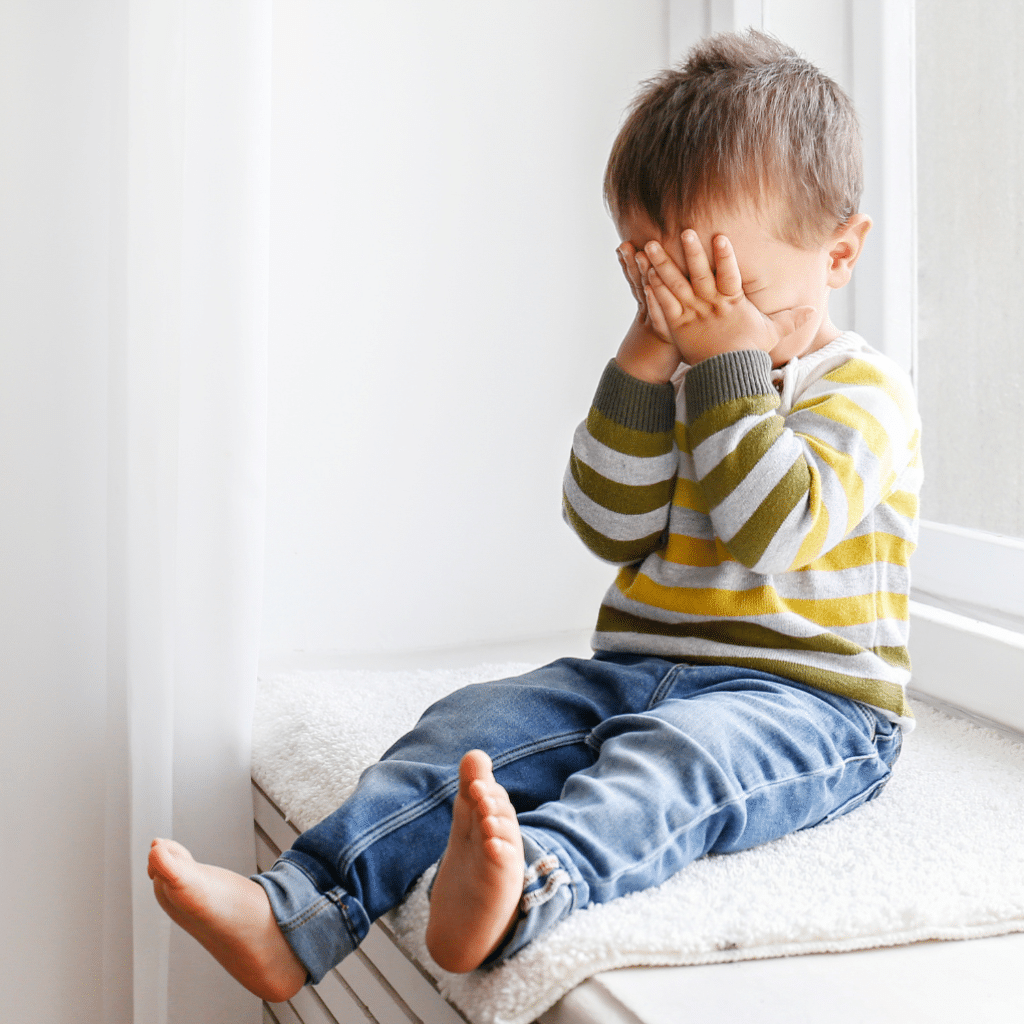If you’re a parent of a toddler you’ll probably have experienced a tantrum or meltdown of some description by now. It can be hard to stay calm and not get frustrated when your child is having a meltdown about something seemingly small so on this week’s blog we’re talking all about tantrums and how to keep your cool and help your toddler through those trickier times.

What age do tantrums start?
Toddlers usually start having tantrums from about 18 months but they can start earlier than this. It’s a completely normal part of childhood and happens because their brains aren’t fully developed. Did you know the human brain isn’t fully developed until around age 25! That said, some adults still have tantrums sometimes…
Why do toddlers tantrum?
Their under-developed brains can’t cope with feelings such as frustration or anger and these big feelings can cause pretty big explosions. It’s important to remember that the child isn’t doing it on purpose, they don’t want to be having these feelings any more than you want them to be having a meltdown!
If your child is beginning to have a meltdown the first thing to look at is any physical reason the child might be struggling; such as are they hungry, tired or anxious about something?
Say yes!
Some tantrums are unavoidable, as we’ve already mentioned it’s normal part of being a small child. However it’s important to pick your battles.
Did you know that the average toddler hears the word ‘no’ about 80 times a day. So when you can say yes; do! Some boundaries will need to be held like if you need to be somewhere on time, or if it’s a safety issue but try saying yes where you can to allow them to have some control over their lives.
Offer choices
Offering choices can help give toddlers control over their lives too, which can help to reduce meltdowns. If we were constantly told what to do, where to go and what cup to drink out of you might feel a bit frustrated too so try to offer choices where possible.
What’s the best way to deal with a meltdown?
It’s important to remember they’re not doing this on purpose and they’re having a tricky time rather than trying to give you a hard time.
Getting cross or punishing them is going to be counterproductive. You don’t have to ‘give in’ to the meltdown, you can still hold your boundary, but showing them kindness and letting them know you’re there for them will help them through those big feelings.
You won’t be able to have a conversation with a toddler during a meltdown as they’re probably not able to hear anything you’re saying while they’re in that state. But once they have calmed down and you’ve had a cuddle you could try naming their feelings to help them understand them.
Should I use a ‘naughty step’ or ‘naughty corner’?
First of all, as we’ve already mentioned, your child isn’t being ‘naughty’, they are having a hard time.
Putting a child on a naughty step or isolating them in some other way is going to be counterproductive. Remember, this is happening because their little brains can’t cope with their big feelings.
Isolating a child is going to make them feel worse and a little child isn’t going to understand. They will not be sitting there thinking about what they did wrong! Making a child feel better is going to help them to feel better and when kids feel good it shows in their behaviour.
Look after yourself
The term ‘self-care’ is used a lot these days but we can’t stress the importance of it when you’re a parent of a small child. Looking after yourself and making sure your cup is filled is going to help you to cope with those more tricky parenting moments.
Don’t get me wrong, we’ve all lost it during a tantrum at some point because they are hard; especially if you have a child who has them very regularly. But looking after your own needs is going to give you the best possible chance to calmly help your child through it.
Remember that tantrums are not a reflection of your parenting in any way and they are a normal part of being a toddler. This too shall pass.
Here some books we recommend which are helpful with parenting small children:
The Gentle Discipline Book – Sarah Ockwell-Smith
Unconditional Parenting – Alfie Kohn
How To Talk So Little Kids Will Listen – Joanna Faber
The Whole Brain Child – Dr Tina Payne Bryson
And here are some books to help children understand their tricky feelings:
I Am Stronger Than Anger – Elizabeth Cole
All My Feelings Book – Kim T.S.
In my Heart – Jo Witek
Be Mindful of Monsters – Lauren Stockly
